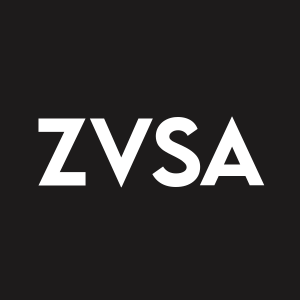ZyVersa Therapeutics CEO Issues Shareholder Letter on PARASOL Recommendations Expected to Reduce Drug Development Barrier for Rare Kidney Disease, Focal Segmental Glomerulosclerosis (FSGS)
Rhea-AI Summary
ZyVersa Therapeutics (NASDAQ: ZVSA) announces significant developments regarding their drug VAR 200 for Focal Segmental Glomerulosclerosis (FSGS). The PARASOL initiative's recent recommendations are expected to streamline FSGS drug development by accepting proteinuria reduction over 24 months as a surrogate endpoint for regulatory approval, replacing the need for long-term kidney failure outcomes.
The company plans to initiate a Phase 2a proof-of-concept trial for VAR 200 in Diabetic Kidney Disease (DKD) patients in the first half of 2025, before proceeding with FSGS trials. This strategic approach aims to gather preliminary human renal data and optimize future FSGS study protocols.
FSGS affects approximately 40,000 people in the US and currently has no approved drug therapies. The global kidney disease drug market reached $18 Billion in 2024 and is projected to reach $30 Billion by 2034. VAR 200, targeting cholesterol accumulation in kidney filtration systems, is positioned as an add-on therapy to existing treatments.
Positive
- PARASOL recommendations significantly reduce drug development barriers for VAR 200 in FSGS
- Large market opportunity with global kidney disease drug market projected to reach $30B by 2034
- Strategic positioning as add-on therapy to existing treatments increases market potential
- Phase 2a proof-of-concept trial initiation planned for first half of 2025
Negative
- No current revenue generation from products
- Still in early clinical development stages with uncertain outcomes
- Faces competition from more advanced treatments like Filspari
- Extended timeline to potential market entry due to clinical trial requirements
News Market Reaction 1 Alert
On the day this news was published, ZVSA gained 118.21%, reflecting a significant positive market reaction.
Data tracked by StockTitan Argus on the day of publication.
WESTON, Fla., April 08, 2025 (GLOBE NEWSWIRE) -- ZyVersa Therapeutics, Inc. (Nasdaq: ZVSA; “ZyVersa”), a clinical stage specialty biopharmaceutical company developing first-in-class drugs for treatment of patients with renal and inflammatory diseases who have unmet medical needs, announces that Stephen C. Glover, Co-Founder, Chairman, Chief Executive Officer, and President, has issued a Shareholder Letter addressing the recent PARASOL recommendations expected to shorten drug development time and approval for rare kidney disease, FSGS. The full text of the letter follows.
A MESSAGE FROM OUR CHIEF EXECUTIVE OFFICER
ZyVersa is developing Cholesterol Efflux Mediator™ VAR 200 for treatment of chronic kidney diseases, initially focusing on FSGS as the lead. Plans for indication expansion include treatments for Alport Syndrome and Diabetic Kidney Disease. The global drug market for kidney diseases was
Today, I am thrilled to update you on a recent advancement that is expected to be a giant step forward in FSGS drug development and anticipated to derisk development of VAR 200 for its lead indication, FSGS. Prior to conducting Phase 2 clinical trials in FSGS, we are initiating a small Phase 2a proof-of-concept trial with VAR 200 in the first half of this year in patients with DKD. The intent of the study is to quickly obtain first in human renal data prior to initiating a larger phase 2a/b trial in patients with FSGS. The DKD data will also provide insights to help optimize protocol design for the subsequent FSGS study.
FSGS is a devastating, progressive, and complex rare kidney disorder affecting around 40,000 people in the US. It is a leading cause of kidney failure, requiring dialysis and transplant for survival. With FSGS, it is common for patients to need more than one kidney transplant since the disease can affect the new kidney in a relatively short period of time. FSGS has an overwhelming negative impact on daily living and quality of life. Disease symptoms, such as fatigue and chronic severe swelling, and the number of required drugs and their side effects interfere with daily activities. It is common for patients to miss a large percentage of school or work days making it challenging to graduate or hold a job. Likewise, patients, especially children, are often hospitalized missing holidays and family celebrations, including their own birthdays. Additionally, patients with FSGS experience a substantial degree of anxiety and emotional impact from fear of needing dialysis or transplant, and from concern about exposure to infectious diseases resulting from the immunosuppressive drugs they are on. This leads to social isolation and loneliness. Kidney failure not only affects patients’ quality of life but has a high economic burden. In 2023, an estimated
One reason for the lack of drug treatments is the high regulatory hurdle requiring drug developers to demonstrate a substantially reduced FSGS progression to kidney failure. FSGS trials can require decades of follow-up in large study populations to measure kidney failure. This is generally not feasible in clinical trials, especially for rare kidney diseases.
Thanks to the initiative of a multi-stakeholder group of rare kidney disease experts and the FDA to identify a robust surrogate endpoint to replace long-term kidney failure outcomes (the PARASOL initiative), it is expected that shorter clinical trials with fewer patients will be required to demonstrate FSGS drug efficacy. The Parasol group recommended a reduction in proteinuria (spillage of protein into the urine) over 24 months as a surrogate endpoint for full regulatory approval of FSGS drugs. According to Dr. Aliza Thompson, PARASOL’s Co-chair and Director of the Cardio-Renal Division at the FDA, “Data supporting the recommendation came from over 25 studies conducted all over the globe and involved more than 1,600 patients, providing a robust foundation for informed regulatory decisions.”
Travere is likely to be the first company to benefit from the PARASOL group’s recommendations. Despite a
In an April 3, 2025 analyst update on Travere, Guggenheim indicated that they believe investors underappreciate the FSGS commercial opportunity, which is substantially larger than that for IgAN. This is based on a higher unmet need for effective FSGS drug therapies since patients progress to kidney failure at twice the rate as IgAN patients, and there are fewer expected competitors reducing price sensitivity. Guggenheim has projected
We are excited about the potential approval of Filspari for FSGS based on a reduction in proteinuria, as it will further support proteinuria as the primary endpoint for VAR 200’s FSGS clinical trials. Because VAR 200 targets a unique pathway leading to development and progression of FSGS and other kidney diseases (accumulation of cholesterol and lipids in the kidney’s filtration system), VAR 200 will be used as add on therapy to Filspari and other standard of care drugs such as steroids and calcineurin inhibitors. For more information about Cholesterol Efflux Mediator™ VAR 200, Click Here.
We thank you for your continued support.
Sincerely,
Stephen C. Glover
Co-Founder, Chairman, Chief Executive Officer, and President
ZyVersa Therapeutics
ABOUT ZYVERSA THERAPEUTICS, INC.
ZyVersa (Nasdaq: ZVSA) is a clinical stage specialty biopharmaceutical company leveraging advanced, proprietary technologies to develop first-in-class drugs for patients with renal and inflammatory diseases who have significant unmet medical needs. The Company is currently advancing a therapeutic development pipeline with multiple programs built around its two proprietary technologies – Cholesterol Efflux Mediator™ VAR 200 for treatment of kidney diseases, and Inflammasome ASC Inhibitor IC 100, targeting damaging inflammation associated with numerous CNS and peripheral inflammatory diseases. For more information, please visit www.zyversa.com.
CAUTIONARY STATEMENT REGARDING FORWARD-LOOKING STATEMENTS
Certain statements contained in this press release regarding matters that are not historical facts, are forward-looking statements within the meaning of Section 21E of the Securities Exchange Act of 1934, as amended, and the Private Securities Litigation Reform Act of 1995. These include statements regarding management’s intentions, plans, beliefs, expectations, or forecasts for the future, and, therefore, you are cautioned not to place undue reliance on them. No forward-looking statement can be guaranteed, and actual results may differ materially from those projected. ZyVersa Therapeutics, Inc. (“ZyVersa”) uses words such as “anticipates,” “believes,” “plans,” “expects,” “projects,” “future,” “intends,” “may,” “will,” “should,” “could,” “estimates,” “predicts,” “potential,” “continue,” “guidance,” and similar expressions to identify these forward-looking statements that are intended to be covered by the safe-harbor provisions. Such forward-looking statements are based on ZyVersa’s expectations and involve risks and uncertainties; consequently, actual results may differ materially from those expressed or implied in the statements due to a number of factors, including ZyVersa’s plans to develop and commercialize its product candidates, the timing of initiation of ZyVersa’s planned preclinical and clinical trials; the timing of the availability of data from ZyVersa’s preclinical and clinical trials; the timing of any planned investigational new drug application or new drug application; ZyVersa’s plans to research, develop, and commercialize its current and future product candidates; the clinical utility, potential benefits and market acceptance of ZyVersa’s product candidates; ZyVersa’s commercialization, marketing and manufacturing capabilities and strategy; ZyVersa’s ability to protect its intellectual property position; and ZyVersa’s estimates regarding future revenue, expenses, capital requirements and need for additional financing.
New factors emerge from time-to-time, and it is not possible for ZyVersa to predict all such factors, nor can ZyVersa assess the impact of each such factor on the business or the extent to which any factor, or combination of factors, may cause actual results to differ materially from those contained in any forward-looking statements. Forward-looking statements included in this press release are based on information available to ZyVersa as of the date of this press release. ZyVersa disclaims any obligation to update such forward-looking statements to reflect events or circumstances after the date of this press release, except as required by applicable law.
This press release does not constitute an offer to sell, or the solicitation of an offer to buy, any securities.
Corporate, IR, and Media Contact
Karen Cashmere
Chief Commercial Officer
kcashmere@zyversa.com
786-251-9641









